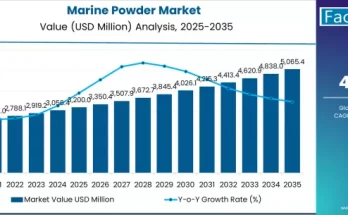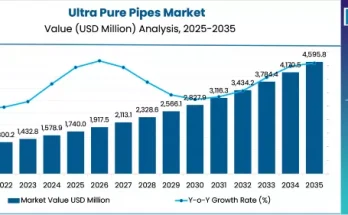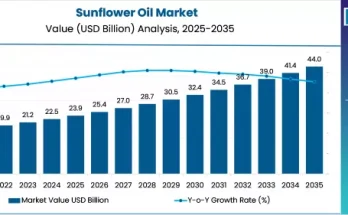In most food service companies the emphasis has historically been on reporting rather than on advanced analytics. The data are stored in database tables in a structured way, which limits the type of querying and analysis that can be performed on the data. This means that the data collected by the organization is not being used to its full potential.
Most of the data is in unstructured forms such as blogs, tweets, images and videos. It is not possible to derive insights from this type of data. But with the use of Big Data, companies can integrate unstructured data with structured data and derive insights into buying patterns and customer behaviour.
Leading food service companies using Big data are:
- Blue Apron- The company has been using big data analytics and using a platform named Looker, to make almost real-time decisions about food delivery which has led to decision-making time by up to one day.
- Fresh Direct – Fresh Direct has been using sensors to process and analyse data for monitoring product status and environmental conditions during transportation.
- Dominos – Along with letting its customers order and pay through the brand’s app, it also grants the customer various exclusive offers and deals. This app also allows the company to gain useful data, from the locations visited by the user, what the user orders as well as how often they order it.
- Similarly, companies such as McDonalds and Taco Bell have also been using enhanced experience through the implementation of Big Data.
- This also includes the food and beverage companies beyond fast food such as door-to-door providers who are employing data to reach wider areas and boost their efficiency.
- Another example is Uber, the ride sharing platform had set up an on-demand barbecue delivery campaign for SXSW attendees joining hands with Iron Works BBQ. Here, both involved platforms leveraged the popularity of where food delivery has popular demand.
Big data helps in following ways:
- Marketing and Advertising: Big Data analytics enables marketing departments to target customers by predicting consumer behaviour and ultimately increases the effectiveness of their marketing spend. Big data helps in following ways:
- Advertising and promotional campaign effectiveness is measured to determine optimum offers to predict the success rate of future campaigns.
- Assess joint marketing programs with suppliers and other dealers by collating customer information from different CRM systems to determine what menu items individual customers would like – thereby increasing the effectiveness of the campaigns.
- Real-time measurement of campaign performance can help tune spending on the campaigns to avoid wasteful expenditure.
- Analyse meals a customer had ordered in previous visits to determine what other dishes he/she would be interested in, and make real time recommendations to increase cross selling.
· Operations, Supply Chain and Security: Big Data is utilized by integrating enterprise data with relevant information from other sources such as shared drives, barcodes etc. Big data also allows businesses to understand their internal functioning. It offers following benefits:
- Reducing wastage and supply chain costs as well as in determining ways to improve efficiency in the organization.
- For instance, Use of barcodes and RFID to track food from Farm-to-Fork. This ensures a smarter supply chain which helps to implement preservation programs, reduce spoilage and provide fresher food to the customer.
- Big Data analysis techniques is also helpful in finding relevant clues to indicate possible attacks, fraudulent transactions and other security breaches by identifying relationships between actions.
- For example, it can determine dubious transactions and subsequently find employees involved in fraudulent transactions by identifying relationships between sales orders, discount coupons used in the orders, employee details and the sequence of event in that sales order.
- Operating system and application logs record the day-to-day activity of system users and provide vital information about the health and well-being of an organization’s system infrastructure in order to maximize uptime.
- Seamless Functioning: In restaurants, the efficient functioning of the POS registers, self-order kiosks, kitchen management system, in-store and wide area networks and other back office or host systems are necessary for seamless functioning of the restaurant. All of these systems generate log files, which contain information about the activity and health of each system. However, it is a challenge to mine useful information from the raw log files. Big Data techniques allow us to analyse these data and mine useful information from them to proactively detect and eliminate system issues for efficient functioning of the restaurant.
· Quality Control: In the food industry, quality is one of the most crucial factors. For example, cold supply chain during transportation involves variety of temperature-sensitive products such as fruits, ice-cream, vegetables, milk etc which require highly suitable and precise environment conditions. Moreover, this can be tarnished in case of any variations. Also, there are particular sensors that are driven by Internet of Things that assist in analysing, processing, and transferring the data to parties in real-time. Moreover, big data is also helpful in replacing any damaged products with good quality ones at right time.
· Faster Deliveries: Getting the food item delivered to the customer on time is the crucial parameter of any business involved in the industry. To execute fast deliveries, Big data analytics is utilized for monitoring and superior comprehension of elements such as construction weather, changes in routes, present climates as well as aspects like distance. With this information, AI is then used for calculating the time needed for travelling to a particular delivery spot.
- Tracking Purchasing Decisions: Big Data is helpful in tracking purchasing decisions in the entire value chain from wholesalers down to the customer level. For instance, a food &m beverage company can learn that customers in a particular region are purchasing 15% more of a diet beverage when compared to another region. This analysis will allow the company to know to ship more products to a particular region.
· Sentiment Analysis: Sentiment analysis has become an important -parameter which basically implies a customer’s feelings or emotions in regards to a brand and its products. This is a technique that is often employed by businesses for gaining more knowledge with regards to their customers and their opinion of the brand. Various tools such as Natural Language Toolkit are adopted to support companies in accessing extensive insights into their customer behaviour and emotions.
· Assessment of Data: Various popular food chains and restaurants have been using mobile app for their customers to place orders, make reservations, or go through the menu. The firm can also assess your experience, such as the time it took to order and receive the food, the duration of the stay. Moreover, it can indicate any sort of complaints or issues.
· Consistent Product: Big Data helps restaurants to preserve consistent product quality. Consumers usually expected a uniform and consistent food taste in their restaurants of choice. The food’s taste depends on various factors such as the right choice of ingredients, good quality and how it is prepared. Various such parameters are measured by Big Data analytics which also indicates their impact on the taste and quality of the food. Moreover, the insights achieved from this analysis is also helpful in detecting areas of difficulties and suggesting improvement measures.


